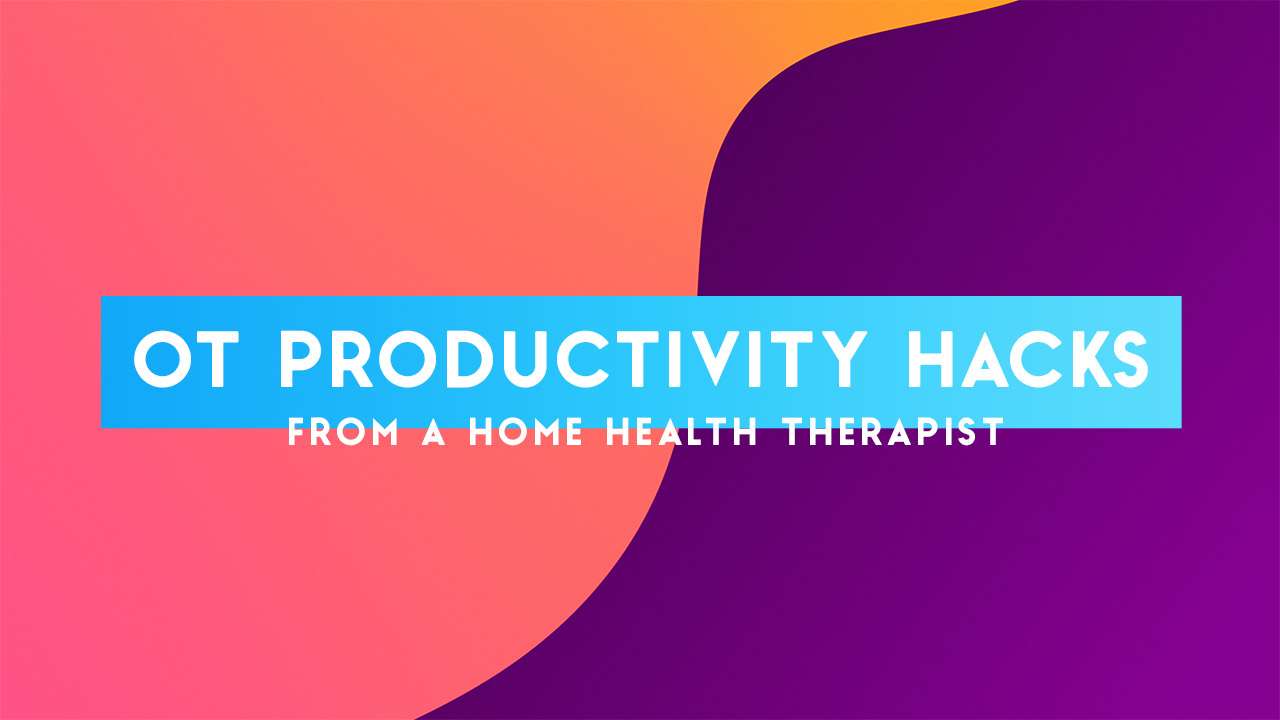Stress Relief and Sound Therapy
Living with stress affects your health, relationships and enjoyment of life. Sound Therapy can bring quick and lasting relief that makes all the difference.
What is stress?
 Stress is what happens when fear or anxiety become a constant state. The physiological effects include contracted muscles, increased heart rate and constricted breathing. The adrenal system is overtaxed and blood pressure rises. Stress interferes with the body’s natural flow of energy. It cuts down our available energy and forces us to function on adrenaline.
Stress is what happens when fear or anxiety become a constant state. The physiological effects include contracted muscles, increased heart rate and constricted breathing. The adrenal system is overtaxed and blood pressure rises. Stress interferes with the body’s natural flow of energy. It cuts down our available energy and forces us to function on adrenaline.
Sudden loud noises trigger a fight-or-flight response: The heart pumps harder, blood pressure rises, and the body releases stress hormones including adrenaline and cortisol.
However, even predictable, continual machine noise such as air conditioners, factory noise or household appliances, adds to our overall stress levels.
“Since using Sound Therapy I have found a way to relax in situations that previously created stress. Airplane travel, preparation for seminars and meetings are much easier since Sound Therapy. I notice…”
Leanne Mitchell, NSW – Read More
Recent research on how our nervous system works also shows that under excessive or prolonged stress a process called the “vagal brake” is switched on, meaning our primitive responses cut in, causing us to shut down. This process affects many of our automatic functions such as breathing, heart rate and digestion, and will have long-term health effects.
Sound Therapy is a great, easy way to counteract the effect of stress. Regular Sound Therapy listening reduces the build-up of stress beyond the level that is healthy for the body.
Sound Therapy reduces stress by:
- Restoring more normal functions to our nervous system
- Recharging the cortex of the brain with high-frequency sound
- Releasing latent energy in the brain
- Enhancing focus and concentration
- Improving the quality of sleep
- Reducing negative mind chatter
- Enhancing inner calm and positive emotions
“It’s allowing me to understand that I’m like an onion with stress – giving me clarity on the layers of stress and unraveling and peeling them. My husband says I seem to not get upset anymore with …”
Rhonda Bowen – Read More
 The brain is calmed so obsessive thinking and mind chatter is reduced. A state that is closer to meditation can be achieved easily and retained throughout the day. Sound Therapy helps to reduce stress by replenishing brain energy with high-frequency sound. When we have enough brain energy we can handle situations more easily and there is less need for stress. Sound Therapy users report that they can deal better with demanding situations requiring multi-tasking and fast responses but can feel serene while doing it.
The brain is calmed so obsessive thinking and mind chatter is reduced. A state that is closer to meditation can be achieved easily and retained throughout the day. Sound Therapy helps to reduce stress by replenishing brain energy with high-frequency sound. When we have enough brain energy we can handle situations more easily and there is less need for stress. Sound Therapy users report that they can deal better with demanding situations requiring multi-tasking and fast responses but can feel serene while doing it.
Make an informed choice—get the eBook
After 26 years in the Sound Therapy field, we really understand chronic stress and what it means to live with this condition. Every week we hear from our listeners thanking us for the relief they have found. Listeners have reported very dramatic changes in the way they deal with and respond to stress which has made a huge difference in their lives.
If you would like to learn more in-depth about how Sound Therapy helps stress, order Rafaele Joudry’s FREE eBook here and benefit from her decades of experience helping thousands of listeners with Sound Therapy.
Or call and speak to one of our qualified Sound Therapy consultants right away.
Start listening to Sound Therapy and start feeling better today!
Anxiety and Sound Therapy
Great news for those who are plagued by anxiety or panic attacks! Sound Therapy calms and harmonizes the entire nervous system bringing deep and lasting relief.
What is anxiety?

Anxiety is a condition where stress worry and dread have built up to the point that they interfere with our daily functioning. Worry about everyday life is exaggerated to the point where it preoccupies the mind. Sufferers tend to worry frequently about health, money, family, work or school. This worrying is often unrealistic or out of proportion to the situation.
Some common symptoms of anxiety include:
- Hot and cold flushes
- Sleeplessness
- Racing heart
- Tightening of the chest
- Ruminative, repetitive worrying
- Obsessive thinking and compulsive behavior
“Since the Sound Therapy has taken effect for me, I no longer know what anxiety is. As a photographer, lecturer and writer, I am traveling continually and am bombarded with more than average demands. E…”
Coutney Milne, Canada – Read More
Noise and anxiety
Research has found that noise-related stress contributes to anxiety and can increase high blood pressure, peptic ulcers, cardiovascular deaths, strokes, suicides, degradation of the immune system, and impairment of learning.
Anxiety may also be linked to certain situations such as social situations, tests or public speaking. This may come from previous associations or bad experiences, a lack of self-confidence, or it may be related to the way we physically process information to help us navigate our world. Subtle processing problems related to vertigo or agoraphobia can sometimes play a role in anxiety without our realizing it.
How Sound Therapy helps reduce anxiety
Discover how quiet yet powerful sounds can wash away stress or anxiety and create emotional balance. But you will also learn that Sound Therapy is much more than just nice music to calm you down. It has been found to work on normalizing many of the automatic functions of our nervous system, by working directly on the ear-brain connection. The ear is intricately linked to our nervous system and in particular effects the functioning of our vagus nerve. The latest scientific discoveries in this field show how our primitive neural pathways affect our feelings of safety and our social and emotional responses.
Brain activity is always either enhanced or depleted by sound, depending on the quality of the sound. This is why Dr. Tomatis said, “Some sounds are as good as two cups of coffee.” Listening to Sound Therapy for three hours a day helps to restore normality to our nervous system, calms the mind and compensates for and counteracts the draining, stressful effect of low-frequency noise.
“For years I’ve lived with a mind filled with almost non-stop, self-abusive thoughts that no amount of counseling or investigation into causes could ease. Within 24 hours of starting Sound Therapy my…”
Coral Waight, VIC – Read More
Insomnia and anxiety

Anxiety is frequently the cause of poor sleep. Insomnia is caused by excessive cortical activity that cannot be stopped. Though Sound Therapy recharges the brain for activity during the day, it also has a calming effect which enables the listener in nearly every case to slip easily and quickly into sleep. While the brain and the nervous system are stimulated by the sound, this results not in a hyperactive state but in a state of active serenity, which allows for deep rest. Sleeplessness due to anxiety can also be resolved.
Survey results indicate that between 70 and 80 percent of Sound Therapy listeners notice an improvement in their sleep. Many insomniacs experience an immediate and dramatic improvement in their sleep.
Make an informed choice—get the eBook
After 26 years in the Sound Therapy field, we really anxiety and what it means to live with this condition. Every week we hear from our listeners thanking us for the relief they have found. Listeners have reported very dramatic changes in their levels of anxiety, which has made a huge difference in their lives.
If you would like to learn more in-depth about how Sound Therapy helps anxiety, order Rafaele Joudry’s FREE eBook here and benefit from her decades of experience helping thousands of listeners with Sound Therapy.
Or call and speak to one of our qualified Sound Therapy consultants right away.
Start listening to Sound Therapy and start feeling better today!
There are many strategies that can help reduce stress, from meditation to guided imagery. One of the simplest and most pleasurable is simply to take a bath — a sound bath, that is.
Sara Auster, sound therapist and meditation teacher, describes a sound bath — a form of sound therapy — as “a meditative event intentionally using sound to invite therapeutic or restorative effects.”
But it’s not music as you know it. The differences, Auster observes, “are in application, motive, and intention.”
And the sounds, says Nate Martinez, a certified sound therapy practitioner and founder of NTM Sound, “tend to be more open and drone-like and less structured compared with traditional music, where rhythm, melody, harmony, and arrangement define the form.”
Martinez and Auster both teach and facilitate sound baths regularly and provide private sessions in New York City, but thanks to the increasing popularity of sound baths, studios in cities across the country now offer sessions.
What Should You Expect at a Sound Bath?
“The experience begins with each person lying down or seated in a comfortable position, often with a blanket and an eye mask. After a few minutes of guided focus on the breath and active listening, the remainder of the experience is filled with different sounds and frequencies being introduced in succession,” says Auster.
The sounds these therapists use, she adds, “are created by a variety of overtone-emitting instruments, including tuning forks, gongs, sruti boxes, Himalayan and crystal singing bowls, chimes, and voice.”
To get a taste of what these sound like, you can listen to short recordings on Auster’s SoundCloud page and on the Recordings page of Martinez’s website.
According to Martinez, “there are no set rules” about which instruments are used, but to avoid an unfavorable response, he suggests refraining from using instruments about which individuals may have judgments, such as a piano or a guitar.
The Sound of Relaxation
Deep rest and relaxation are the goal, says Auster. “Sound can bring balance, relaxation, and a sense of wholeness to the body. The sound of harmonic vibrations created by singing bowls, gongs, and other overtone-emitting instruments is intended to stimulate the alpha and theta brain waves, which are associated with deep meditative and peaceful states that are highly conducive to healing.”
The benefits are much like those of meditation, which is not surprising, since many sound therapists consider it a form of meditation.
“The experience of a sound bath or sound meditation can be helpful for anyone who wants to access a moment of relaxation or gain the benefits of meditation,” says Auster. It’s an opportunity, she adds, “to explore what a meditative state is and how it feels. For this reason, it can be beneficial for both beginners of meditation and experienced meditators as well.”
Counteracting the Effects of Stress
In addition to contributing to deep relaxation, sound baths, says Martinez, “can be very helpful with anxiety and stress, which manifest in so many ways, affecting sleep, digestion, and memory. By experiencing a sound bath, you can provide your whole body with a reset,” he says.
“This experience creates an environment in which relaxation can occur both physically and mentally. Sound waves can also slow down the heart and respiratory rate, creating a therapeutic effect on the mind and body. When the brain waves and body are synchronized, balance can be restored and stress released,” Martinez says.
Because, as Martinez explains, “sound affects our whole being positively, it can be especially helpful for people with chronic illnesses. It’s especially challenging when the nervous system is constantly in fight-or-flight mode due to a chronic issue. The result is increased tension and an impact on the nervous system. Sound can help to reset or reframe our perspective. This is crucial to addressing pain as well as other traumas and issues that we have to come to terms with and hopefully overcome in our lives.”
Auster agrees that sound “can transform an individual’s relationship to pain and in turn improve a range of conditions, including chronic illness, trauma, and much more.”
RELATED: The United States of Stress
What the Research Says About Sound Baths
Although there’s little research about the effectiveness of sound baths, support for the practice, says Martinez, comes from research concerning the effects of music and the effects of meditation.
“This cross section is where it’s easiest to understand some of the benefits until more research is done,” he says.
Numerous studies support the use of meditation for stress reduction, among other purposes. For example, in a systematic review and meta-analysis of randomized controlled trials published in July 2012 in the journal Depression and Anxiety, 25 of 36 studies reported “statistically superior outcomes” in reducing the symptoms of anxiety among meditators compared with those who did not meditate. (1)
A second systematic review and meta-analysis of 45 randomized controlled trials, this one published in the Journal of Psychiatric Research in December 2017, found that meditation practice leads to decreased physiological markers of stress, including systolic blood pressure, heart rate, and cortisol levels. (2)
Similarly, research has validated the effectiveness of music as a stress buster. A study published in October 2015 in the journal Psychoneuroendocrinology found that music reduced stress levels among college students, especially when they listened specifically for purposes of relaxation. (3)
Music also has the ability to energize and refresh listeners, according to a study published in February 2019 in Frontiers in Human Neuroscience. Participants used a stress-reduction app that offered both musical and non-musical means of stress reduction, such as guided relaxation exercises. While both the music and the non-music approaches were effective at reducing stress and increasing feelings of relaxation, the music was more effective at bringing about “activation,” or positive arousal. (4)
The More Sound Bathing the Better
Regular attendance at sound baths can deepen the experience and expand the benefits.
“It’s always different,” says Martinez. “Each day we wake up brings a new set of challenges, and as we work through them throughout our lives, we understand what wellness practices provide the most benefits. People who come more regularly understand that they feel better after a session, so it’s an easy decision for them to continue,” he says.
“When individuals can open themselves to an experience that has the potential to reach them on an emotional, physiological, and spiritual level, there’s opportunity for personal growth and self-healing,” says Auster. The benefits, she adds, “would be exponential if they commit to repeated and regular practice.”
Trying Sound Baths on Your Own
It’s preferable to participate in a sound bath in person, because otherwise, says Martinez, “you’re not in the physical space, and your body is not responding to the natural analog waves moving through the room.”
But if you can’t attend or don’t live in a location where you can find a sound bath, recordings are the next best thing. Many examples can be found on YouTube, and both Auster and Martinez have recordings available for purchase on their websites.
“Listening to recordings at home is a great way to enhance your meditation practice and slow down and relax,” she says. “However, there’s nothing like being in the same room as the instruments and the practitioner responding to the individual or the group.”
In addition to recordings, you can learn to create your own sound baths, experimenting with the instruments.
“Playing singing bowls can be therapeutic and meditative as well,” says Auster, who offers introductory workshops, weekends, and training for all levels of interest and experience.
“One of the easiest things I encourage is for individuals to use their voices,” says Martinez. He recommends vocal toning, another type of sound therapy that might be described as the sustained production of single tones to create frequencies that reverberate in the body. It’s easy, he says, to learn the basics, “and that can have a tremendous positive effect.”
Evaluating Sound Therapists
While sound baths are widely available, not all providers are equally trained. Look for certified sound therapists, who’ve had extensive training. The International Sound Therapy Association, says Auster, is a great resource for finding certified practitioners. “Seek referrals, ask questions, read testimonials, and make sure it feels like a good fit for you,” she says.



